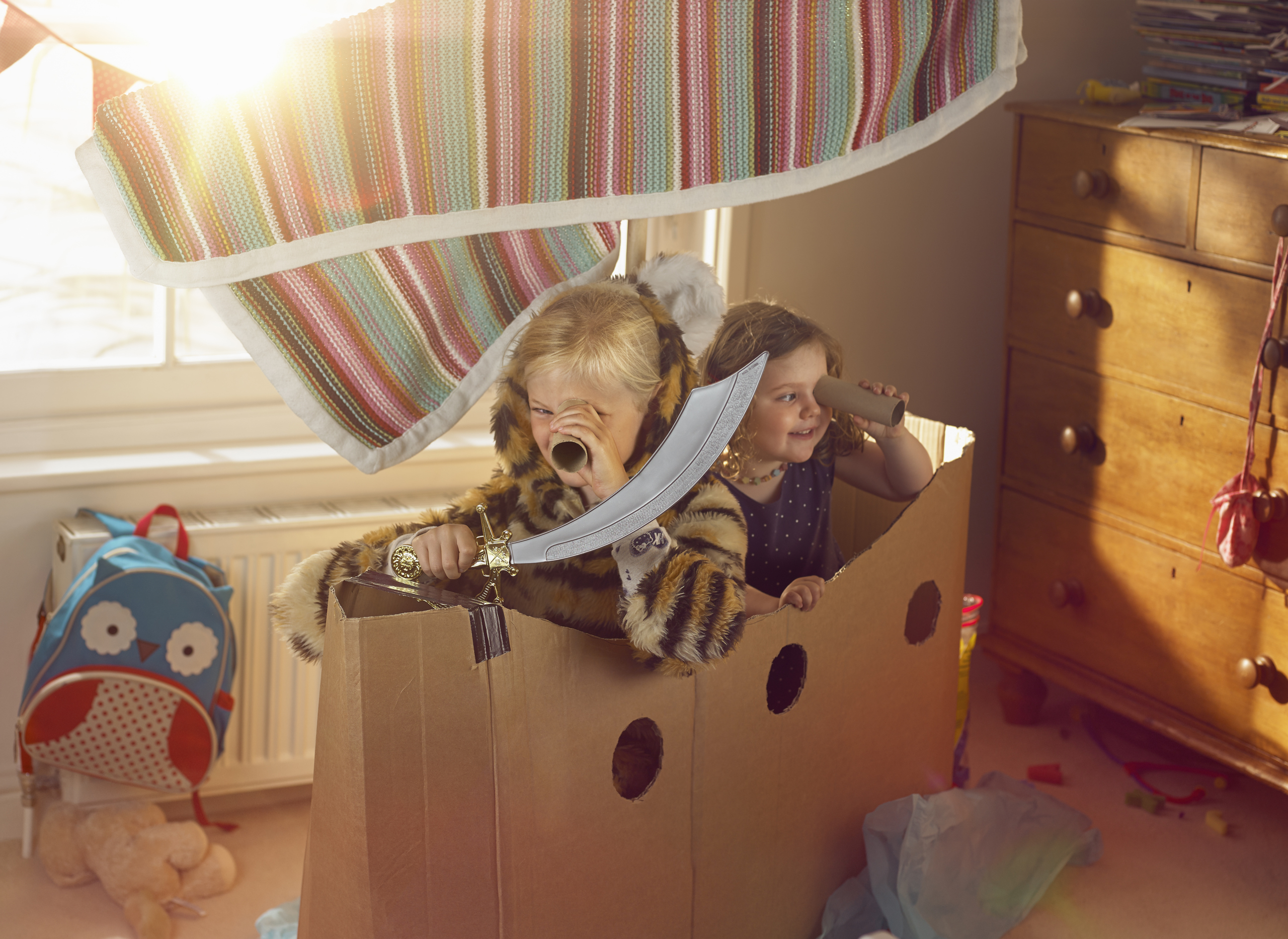You don’t need fancy toys or high-tech gadgets to learn through play. Children acquire a range of skills through pretend play. Take a look.

Pretend play is a perfect way for children to explore their feelings and for toddlers to begin understanding the world. While the scenarios might be make-believe, the learning that comes with it is very real. Here are four reasons why parents, caregivers, and children can enjoy and learn from pretend play:
1. It’s Great Practice for Real Life
When you pretend to brew a cup of tea or go to the supermarket, you’re also showing children how to do these things in real life. Young kids will quickly mimic you—improving their skills and making the play more meaningful.
2. Enhances Social Skills
Role-playing is fantastic for helping young children figure out the best ways to handle different situations and emotions. What will they do if you both want to buy the last apple in an imaginary grocery store? How will they respond if you pretend to be a scared circus performer refusing to go on stage? Through role-playing, children can try different approaches and see how others react to what they say or do.
3. Teaches Theory of Mind
We find that between ages one and two, babies engage in more pretend play—whether feeding a toy teddy bear or holding a shoe like it’s a phone. But as they start to pretend play with others, they hone a very special skill: theory of mind. That’s right. To play well with others, children need to recognize and understand different social cues. They also need to know when they’re in pretend play versus real life. Studies show that even very young children can distinguish between the two quite well. This “mind-reading” skill helps them form better relationships as they grow.
4. A Safe Way to Explore Feelings and Practice Reasoning
Pretend play is a safe, reassuring way for children to solve problems with adults and understand their feelings about real-life situations. For older kids, it can help them act out scary things like their first day of school or ease their nerves before a performance.
Pretend play can even help children in crisis environments start to process some of what they’ve seen.



